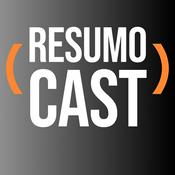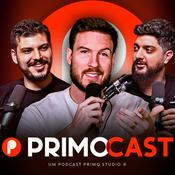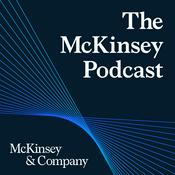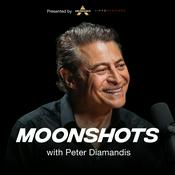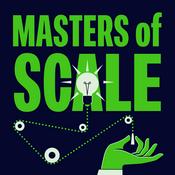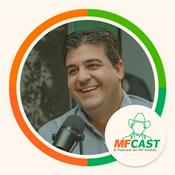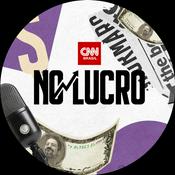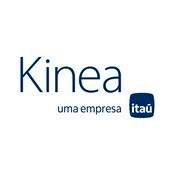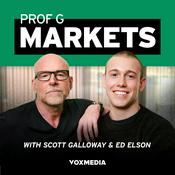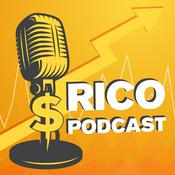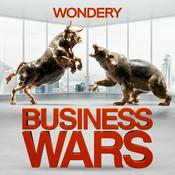144 episódios

Ep. 144: Grant Kornman, Partner at Align Collaborate
19/12/2025 | 45min
Topics:How Sponsors Communicate EfficientlyWhat Investors Look For in First CallsLower Middle Market Buy-and-Build Strategies...and so much more.Top TakeawaysMatch your capital partners to your stage of maturity. Grant notes that choosing the right capital partner upfront prevents misalignment and speeds your path forward. For example, early sponsors gain the most by co-sponsoring with seasoned PE funds to learn what “good” looks like. Sponsors aiming to raise a future fund need co-investors who protect attribution and let them build a clean track record. Lead with the value you’ll create, not the deal you found. Grant sees it all the time: independent sponsors spend 45 minutes on deal mechanics and leave only a few minutes on the plan that actually drives returns. It’s backwards. Investors care far more about the growth thesis, the value levers, the M&A roadmap, and why you are the right person to execute it. VOC + Market Mapping is the new standard for top sponsors. Grant expects more sponsors to invest in structured market studies, especially voice of customer to validate why the company wins, and market mapping to define the actual M&A universe. Most sponsors talk about add-ons, but few can prove how many targets exist, which ones fit, or whether sellers transact. Investors back the sponsors who can quantify this, not just claim it.About Grant Kornman Grant Kornman is a former independent sponsor with more than a decade of experience buying and growing lower-middle-market companies. He co-founded NCK Capital and built a track record across multiple sectors through disciplined investing and operator-level execution. As a Partner at Align Collaborate, Grant brings a sponsor-first approach to equity shaped by a deep understanding of what independent sponsors need to execute and create value.About Align CollaborateAlign Collaborate is an equity partner purpose-built for independent sponsors. Launched by Align Capital Partners in partnership with Grant and Michael Kornman, the firm provides fast, flexible equity for lower middle-market buyouts. Their model is designed around the realities of the IS ecosystem: clean attribution, quick decisions, tailored structures, and the option to leverage ACP’s operational resources.

Ep. 143: Sean Mooney, Founder & CEO at BluWave
04/12/2025 | 50min
Topics:Emotional Highs & Lows of FoundersWhy Hire Above Your Skill SetLearning to Spot Opportunities...and so much more.Top TakeawaysFounders: Build a culture of cheap experiments and fast iteration. The first version of BluWave was a platform people liked in theory but hated in execution. That’s when the team leaned on Jim Collins’ “bullets before cannonballs” approach: test small, validate, then scale. Sean ran a series of low-risk experiments to see what actually worked before committing resources. By iterating quickly and scaling only what the market proved out, BluWave went from zero traction to the 2021 Inc. 5000 list of fastest-growing PE firms.Ask for help before you hit a wall. Sean nearly shut the business down because he tried to solve everything alone. Jordan saw the same thing: real breakthroughs only happened after admitting he was stuck. For founders, isolation is dangerous. Build a habit of pulling in outside perspectives early to shorten cycles, avoid blind spots, and make better decisions.Train your brain to see opportunity, not risk. Sean’s team uses the “red car theory”: whatever you train your brain to look for (red cars, opportunities, inefficiencies), you’ll start noticing them everywhere. Most people default to scanning for risks. Great operators do the opposite and train their attention toward leverage points. Practice that habit long enough, and it becomes a real advantage.About Sean MooneySean Mooney is the Founder and CEO of BluWave, a market network built for private equity. After two decades as a PE partner, he left a stable career to solve a recurring bottleneck he saw firsthand: the difficulty of finding reliable, high-quality third-party resources quickly. Today, BluWave serves hundreds of firms and their portfolio companies.About BluWaveBluWave is a Nashville-based platform that connects private equity firms and their portfolio companies with vetted third-party resources for diligence, value creation, and preparation for sale. It combines a curated network with a high-touch matching process to help teams find the specialists they need quickly and reliably.

Ep. 142: John Fruehwirth, Managing Partner at Rotunda Capital Partners
06/11/2025 | 1h 19min
Topics:Early Fundraising MistakesCulture of Constructive DebateUsing Data for Value Creation ...and so much more.Top TakeawaysSimplicity is a fundraising advantage. New managers often try to stand out with creative structures or mixed strategies. Instead, make it easy for investors to say “yes”: standard 2/20 terms, one defined strategy, three memorable differentiators, and an ongoing dialogue with investors. Predictability builds trust—and trust raises funds.Healthy debate drives better decisions. Rotunda’s culture is built on one principle: “Disrespect the idea, respect the colleague.” Every voice—associate or senior—is encouraged to challenge assumptions and pressure-test deals, but never the person presenting them. And if alignment isn’t there, the deal is dropped. Forcing a divided deal almost always costs more than the opportunity lost.Strategy maps make execution measurable. Before closing a deal, Rotunda aligns with management on a 3- to 5-year vision, defining success through clear EBITDA targets, growth priorities, milestones, etc. Post-close, that strategy map becomes a living document reviewed monthly and used to guide board discussions. Every new opportunity is tested against it. If it’s not on the map, it waits unless the team agrees to revise the plan. The result is sharper alignment, disciplined execution, and fewer “shiny object” distractions.Execution creates optionality. John’s mantra “Get Sh*t Done” captures his belief that motion beats perfection. At Rotunda, that mindset led to bold experimentation: hiring data scientists before it was common, testing new pricing models, and launching analytics projects. Every executed idea broadens perspective and adds insight. Stack enough of them, and you create optionality. About John FruehwirthJohn Fruehwirth is the Managing Partner and co-founder of Rotunda Capital Partners. With 20+ years of experience across debt and equity investing, he’s built a reputation for pairing disciplined execution with data-driven decision-making. Fruehwirth champions a hands-on, collaborative approach, focusing on operational improvement, culture, and measurable value creation.About Rotunda Capital PartnersRotunda Capital Partners is an operationally-oriented private equity firm that partners with founder- and family-owned companies in the lower-middle market. They focus on value-added distribution, asset-light logistics and service-oriented industrial sectors, employing a model built around people, process, technology and data to drive sustainable growth.

Ep. 141: David Acharya, Managing Partner at Acharya Capital Partners
09/10/2025 | 1h 8min
Topics:How to Prepare for a SaleCustomer Diversification as a Growth LeverImportance of Board Culture...and so much more.Top TakeawaysKeep leverage in check for stability. In the ImpactXM deal, David’s team held the company for 10 years and achieved a 21x ROI. When COVID hit, low leverage and a diversified service mix kept the business alive. The lesson for independent sponsors: don’t overextend just to win a deal. A strong balance sheet and disciplined cash management create the runway to survive shocks and capture long-term upside.Get the books in order before diligence. David explains that many deals fall apart because sellers aren’t prepared. Independent sponsors should push for clean reporting, monthly closes, and 13-week cash flows. These basics streamline diligence, build investor confidence, and keep management focused on running the business.Board culture can drive exponential growth. Founder-led businesses often lack formal boards. Independent sponsors can add immediate value by instituting structured board meetings. Simple steps, like setting agendas, tracking follow-ups, and standardizing reporting, can shift a company from reactive to strategic and set the stage for growth.About David AcharyaDavid Acharya is the Managing Partner of Acharya Capital Partners, leading the firm’s investing, strategy, and operations. With 25+ years of investing and transaction experience, he’s known for hands-on value creation. He began his career in investment banking at JPMorgan Chase and Toronto Dominion, where he helped raise $18B+ across telecom, media, consumer, and financial sectors.About Acharya Capital PartnersAcharya Capital Partners (ACP) is a New York–based independent sponsor firm specializing in lower middle-market investments. The firm partners with founders and management teams to drive growth through disciplined buy-and-build strategies, operational enhancements, and professionalized governance. ACP focuses on companies in technology, media and telecommunications, marketing services, and light manufacturing, typically with $3–20 million of EBITDA.

Ep. 140: Eliot Kerlin, Founder & Managing Partner at Broadwing Capital
25/9/2025 | 46min
Topics:Thematic Sourcing for Better DealsHow to Fortify the Foundation Post-ClosePeople & Culture as a Value Driver...and so much more.Top TakeawaysBuild a data-driven foundation. Eliot and Jordan agree it’s impossible to manage what you can’t measure. In the first 120 days, Broadwing focuses on defining key KPIs, setting a reporting cadence, and creating a single source of truth for data. This alignment between hard data and management’s intuition drives smarter decisions on sales, costs, and growth. Put people at the center of value creation. Broadwing Capital believes the people inside portfolio companies are the true foundation of growth. That’s why culture should be valued as highly as financial performance. Their mantra—“Onsite early, onsite often”—reflects a hands-on approach where building meaningful relationships accelerates execution.Lead with humility. In an industry known for confidence and control, Broadwing makes humility a core value. They emphasize listening to operators, learning from management teams, and recognizing that sector expertise often runs deeper inside the portfolio company than at the fund. That mindset builds trust and strengthens partnerships.About Eliot KerlinEliot Kerlin is the Founder & Managing Partner at Broadwing Capital, where he leads deal origination and works closely with management teams post-acquisition to deliver transformative results. Active in private equity since 2000, he brings extensive experience in M&A, corporate strategy, performance improvement, and value realization through sales, public offerings, and dividend recapitalizations.About Broadwing CapitalBroadwing Capital is a Dallas-based private equity firm targeting North American companies with $5–30 million in EBITDA. The firm focuses on founder- and family-owned businesses, providing both capital and operational expertise to accelerate growth. Its hands-on approach emphasizes culture, collaboration, and community impact to build more sustainable companies.
Mais podcasts de Negócios
Podcasts em tendência em Negócios
Sobre Investors & Operators
Ouça Investors & Operators, Do Zero ao Topo e muitos outros podcasts de todo o mundo com o aplicativo o radio.net
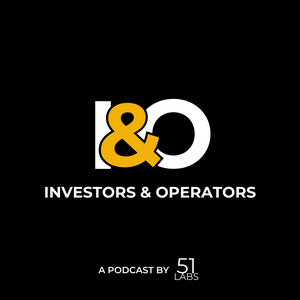
Obtenha o aplicativo gratuito radio.net
- Guardar rádios e podcasts favoritos
- Transmissão via Wi-Fi ou Bluetooth
- Carplay & Android Audo compatìvel
- E ainda mais funções
Obtenha o aplicativo gratuito radio.net
- Guardar rádios e podcasts favoritos
- Transmissão via Wi-Fi ou Bluetooth
- Carplay & Android Audo compatìvel
- E ainda mais funções


Investors & Operators
baixe o aplicativo,
ouça.

